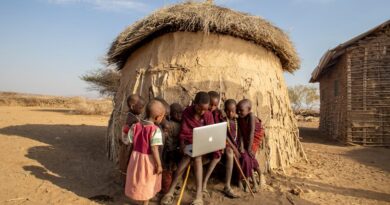Unveiling the Power of Local Change-Makers: Transforming Communities One Step at a Time
Imagine a world where individuals within a community rise up to tackle social, environmental, or economic challenges head-on, creating positive and lasting change right in their own neighborhoods. These unsung heroes, known as local change-makers, play a vital role in shaping the world around us. From grassroots activists and social entrepreneurs to volunteers and educators, these individuals are the driving force behind transformative initiatives that uplift and empower those in need.
But who are these local change-makers, and what drives them to make a difference? How do they navigate obstacles and create impactful solutions within their communities? In this comprehensive guide, we’ll delve deep into the world of local change-makers, exploring their motivations, methods, and the profound impact they have on society.
The Roots of Local Change-Makers: A Historical Perspective

By RDNE Stock project via Pexels
Local change-makers have been an integral part of society for centuries, embodying the spirit of activism and advocacy in various forms. From the civil rights movements of the 1960s to the women’s suffrage movement of the early 20th century, individuals have long been at the forefront of driving social change from the ground up.
One of the earliest examples of local change-makers can be traced back to community organizers during the industrial revolution, who fought for workers’ rights and better working conditions. These grassroots activists paved the way for future generations of change-makers, inspiring countless individuals to take action in their own communities.
Today, the legacy of these historical change-makers lives on in the work of modern-day activists, advocates, and volunteers who continue to fight for social justice, environmental sustainability, and equal rights for all. By understanding the roots of local change-makers, we can gain a deeper appreciation for their role in shaping our world.
The Rise of Social Entrepreneurship: A New Wave of Change-Makers

By Eslam Mohammed Abdelmaksoud via Pexels
In recent years, a new breed of change-makers has emerged on the scene social entrepreneurs. These innovative individuals combine business acumen with a passion for social change, creating sustainable solutions to address pressing issues in their communities.
One such example is Jane Chen, the co-founder of Embrace Innovations, a social enterprise that designs low-cost infant warmers for premature babies in developing countries. By leveraging her background in business and design, Chen has been able to make a significant impact on infant mortality rates in underserved communities around the world.
Another notable social entrepreneur is Blake Mycoskie, the founder of TOMS Shoes. Through his “One for One” business model, Mycoskie has donated millions of shoes to children in need and helped provide clean water, eyecare, and other essential services to communities in developing countries. By harnessing the power of entrepreneurship for social good, these change-makers are redefining the way we approach social impact.
Empowering Communities Through Volunteerism

By Khalifa Yahaya via Pexels
Volunteers are the lifeblood of any community, dedicating their time and energy to support those in need and drive positive change. Whether it’s through local nonprofits, community organizations, or grassroots initiatives, volunteers play a crucial role in addressing social issues at the grassroots level.
Take, for example, Maria, a volunteer at a local food bank in her community. Every week, Maria spends her evenings sorting and packaging food donations, ensuring that families in need have access to nutritious meals. Through her commitment to service, Maria not only helps alleviate hunger in her community but also fosters a sense of unity and compassion among her fellow volunteers.
Volunteerism is a powerful force for good, allowing individuals to make a tangible impact on the lives of others and create a sense of solidarity within their communities. By highlighting the stories of dedicated volunteers like Maria, we can inspire others to take action and become change-makers in their own right.
Education as a Catalyst for Change

By Ahmed via Pexels
Education is often hailed as the great equalizer, providing individuals with the knowledge and skills they need to succeed in life. But beyond academic achievement, education can also be a powerful tool for social change, empowering individuals to challenge the status quo and advocate for a better future.
Teachers, educators, and mentors play a critical role in shaping the next generation of change-makers, instilling values of empathy, compassion, and social responsibility in their students. By creating inclusive and engaging learning environments, educators can foster a sense of agency and empowerment among young people, encouraging them to become active participants in their communities.
One shining example of the transformative power of education is the story of Malala Yousafzai, the Pakistani activist who survived an assassination attempt by the Taliban and went on to become a global advocate for girls’ education. Through her courage and determination, Malala has inspired millions of young people around the world to stand up for their rights and pursue their dreams.
Technology and Innovation: Tools for Change
In today’s digital age, technology and innovation are driving unprecedented progress in the realm of social change. From crowdfunding platforms and social media campaigns to mobile apps and virtual reality experiences, technology has opened up new possibilities for individuals to engage with their communities and make a difference.
One such example is the rise of online activism, where individuals use social media and digital platforms to raise awareness about important social issues and mobilize support for causes they care about. By harnessing the power of technology, change-makers can reach a global audience and amplify their impact in ways that were never before possible.
Another exciting development is the use of blockchain technology to promote transparency and accountability in the nonprofit sector. Blockchain allows donors to track their contributions and ensure that their funds are being used effectively and ethically, fostering trust and confidence in the organizations they support.
Building Bridges: Collaboration and Collective Action
While individual change-makers can make a significant impact in their communities, collaboration and collective action are essential for driving systemic change on a larger scale. By working together and pooling resources, change-makers can amplify their impact, leverage their strengths, and address complex challenges more effectively.
One inspiring example of collaborative action is the Global Goals for Sustainable Development, a set of 17 ambitious goals adopted by world leaders to address poverty, inequality, climate change, and other pressing global issues by 2030. Through partnerships between governments, businesses, nonprofits, and individuals, the Global Goals initiative aims to mobilize collective action and create a more sustainable and equitable world for all.
By fostering a culture of collaboration and cooperation, change-makers can create a ripple effect that spreads far beyond their immediate communities, inspiring others to join in the effort and work towards a common vision of a better world for future generations.
Expert Opinions: Insights from Change-Makers
Let’s hear from some seasoned change-makers about their experiences and insights on driving social change at the local level:
“As a social entrepreneur, I believe in the power of business to drive positive change in the world. By creating sustainable solutions to address social and environmental challenges, we can make a lasting impact on the lives of those in need.” – Jane Chen, Co-founder of Embrace Innovations.
“Volunteerism is not just about giving back it’s about building connections, fostering empathy, and creating a sense of community. Through my work at the food bank, I have seen firsthand the transformative power of service and solidarity.” – Maria, Volunteer at a local food bank.
“Education is the key to unlocking human potential and creating a more just and equitable society. By empowering students to think critically, act compassionately, and advocate for change, we can build a brighter future for all.” – Educator and mentor.
Common Misconceptions About Local Change-Makers
Despite their invaluable contributions to society, local change-makers often face misconceptions and stereotypes that undermine their efforts and impact. Let’s debunk some common myths about local change-makers:
Myth #1: Change-makers are only motivated by personal gain or recognition.
Reality: Most local change-makers are driven by a genuine desire to make a difference and improve the lives of others, rather than seeking fame or fortune.
Myth #2: Change-makers must have vast resources and connections to create meaningful change.
Reality: Many local change-makers start with limited resources and networks but leverage their passion, creativity, and commitment to drive impactful initiatives within their communities.
Myth #3: Change-makers work alone and do not collaborate with others.
Reality: Collaboration and collective action are key principles of effective change-making, as individuals can achieve greater impact by working together and pooling their resources and expertise.
FAQs: Your Burning Questions About Local Change-Makers Answered
Q: How can I become a local change-maker in my community?
A: Start by identifying an issue or cause that you are passionate about, connect with like-minded individuals and organizations, and take action by volunteering, fundraising, or advocating for change.
Q: What are some ways I can support local change-makers in my community?
A: You can support local change-makers by volunteering your time, donating to their organizations or initiatives, spreading awareness about their work, and advocating for policy changes that align with their goals.
Q: What are some challenges that local change-makers face in their work?
A: Local change-makers may face obstacles such as lack of funding, limited resources, resistance from established institutions, and burnout from the demands of their work. Despite these challenges, many change-makers persevere and continue to make a difference in their communities.
To Wrap Things Up: The Power of Local Change-Makers
Local change-makers are the unsung heroes of our communities, working tirelessly to address social, environmental, and economic challenges and create a better world for all. By harnessing their passion, creativity, and commitment, these individuals have the power to inspire change, foster unity, and drive progress at the grassroots level.
As we reflect on the stories and insights of local change-makers, let’s remember that each of us has the potential to make a difference in our own unique way. Whether through volunteering, advocacy, entrepreneurship, or education, we can all contribute to a more just, equitable, and sustainable future for generations to come.




